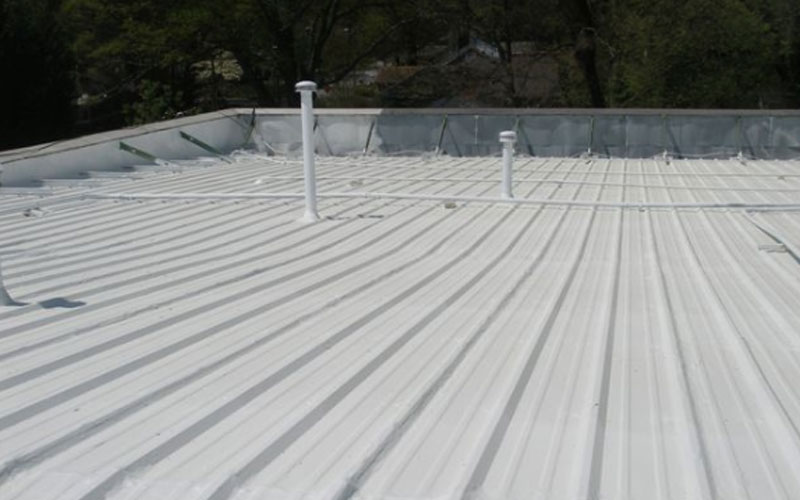Roof coatings have an extremely important part to play in protecting a building’s roof. An elastomeric roof coating is a type of coating that is designed to stretch so that it covers the entire roof. In addition, the coating expands and contracts along with the roof as the temperature changes. Thus, roofs with elastomeric coatings are far more reliable and durable than they would be otherwise. Most types of roofs are suitable for elastomeric coatings.
When you’re choosing a roof coating for a customer’s building, it’s important to consider whether the coating has sufficient elongation to cover the entire roof. If you pick the wrong type of coating, then it’s liable to require replacement sooner than it should. As a result, the customer will not be satisfied with the coating job. Here’s what you need to know about the role of elongation in roof coatings.

What is elongation?
Elongation is, simply, how much you can stretch a piece of material until it breaks. When it comes to roof coatings, elongation measures how far a coating can stretch to cover an entire roof. Keep in mind, of course, that roofs aren’t static. Instead, they change size in response to the conditions around them. Thus, a roof coating has to have enough elongation to account for those changes.
What is tensile strength?
Tensile strength is a related concept that you should know about as well. Tensile strength means how much pressure the coating can take before breaking. What’s important to understand is that elongation and tensile strength have an inverse relationship. That is, as elongation increases, tensile strength decreases—and the other way around. Thus, it’s important that you find the right balance when you’re choosing a roof coating.
How does the roof coating’s elongation affect the roof?
As the outside temperature changes, it causes the roofing materials to shrink and grow. If a roof coating doesn’t have adequate elongation, then the contraction and expansion of the roof will weaken the coating. In order to protect the roof, the coating can’t just be flexible enough to expand. It also has to be able to return to its original position when necessary. If the coating is durable enough to stand up to repeated contracting and expanding, then it’s strong enough to provide protection for the roof.
What level of elongation is required for a roof coating?
The amount of elongation you’ll get varies depending on the coating. For most modern roof coatings, however, it ranges from 300 to 800 percent.
How do I choose a roof coating with the right degree of elongation?
In order to choose the best possible roof coating for a building, it’s important to take every major factor into account. This includes the coating’s elongation, tensile strength, resistance to water vapor, and resistance to tearing. If you pick a coating that is strong in every aspect, then it will be likely to serve a customer well for many years to come.
